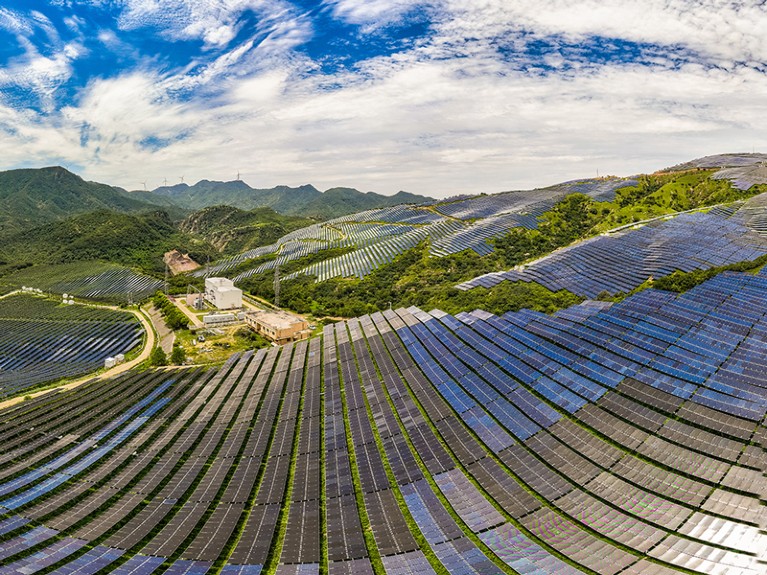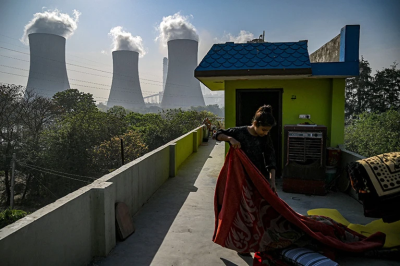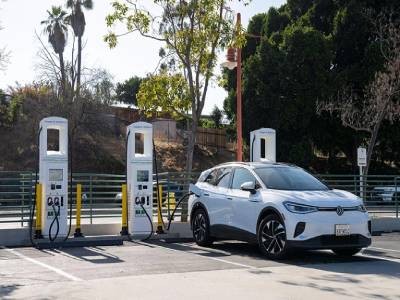- Engineering and Architecture
- Management and Business Administration
- Medicine and Allied Sciences
- Animation and Design
- Media, Mass Communication and Journalism
- Finance & Accounts
- Computer Application and IT
- Hospitality and Tourism
- Competition
- Study Abroad
- Arts, Commerce & Sciences
- Online Courses and Certifications

Essay on One Step Towards Green And Clean Energy
One step towards green and clean energy essay -.
Energy is extremely essential to life and all living organisms. We need energy to function effectively in our everyday lives. Most of the living and nonliving organisms around us need energy for sustenance. Traditional energy sources like coal,oil,and natural gas contribute to global climate change. Burning of these fuels also causes air pollution. So we should use more renewable energy sources. Here are a few sample essays on “One Step Towards Green And Clean Energy” .

100 Words Essay On One Step Towards Green And Clean Energy
Green energy is generated from natural resources such as sunlight, wind or water. It often comes from renewable energy sources and includes wind energy, solar energy, geothermal energy and hydroelectric power .
These energy sources can help to reduce pollution and have several advantages such as minimal maintenance cost, cost savings and storage capacities. Human behavior of contaminating the earth with hazardous wastes and garbage degrades and pollutes the environment.
A good approach will be to work to transform these wastes into biogas, which is a renewable energy source. Turning to the use of green energy is an excellent strategy to alleviate global warming and maintain a clean and healthy environment.
200 Words Essay On One Step Towards Green And Clean Energy
The world needs cleaner energy sources. ‘Go green’ is an earth-friendly approach to living. It means as an individual as well as a community in a way that is friendly to the environment and is sustainable for the earth.
Advantages Of Green Energy
Green and clean energy sources have very low or zero carbon emissions. They are environment- friendly.
Another advantage is that it is irrelevant to rely on any country to supply renewable energy resources, unlike its non-renewable counterparts.
In 2019 India also announced that it would be additionally doubling its renewable energy target from 175 GW by 2022 to 450 Giga-Watt.
Green energy is really beneficial for the environment because it does not affect nature in any way. It is one of the alternative energy sources that has received distinct attention from governments and various organizations to keep the planet clean.
Green energy can reduce the effects of greenhouse gasses produced in the atmosphere by fossil fuels and other sources.
We may utilize solar-powered stoves and other solar-powered gadgets to help us harness the sun’s energy. It will aid in the conservation of energy and be convenient in the future. Moreover, good energy resources will be obtainable in the future.
500 Words Essay On One Step Towards Green And Clean Energy
The present era is the era of industrialisation, to which energy is essential. For most of this work, traditional sources of energy are used. These traditional sources of energy have detrimental effects on the environment. Hence, a helpful alternative will be to turn to sources of green and clean energy.
Green energy can be defined as a renewable energy source because it is never exhausted. It's a sustainable energy source for generations. Wind turbines are a well-known example of green and clean energy. They generate electricity by working with the wind.
This creates zero carbon emissions. Windmills are another source of renewable energy. Geothermal energy is another example of a renewable energy resource. They are found in the earth's crust. They are extracted by drilling.
India’s Steps Towards Green And Clean Energy
Recent studies have shown that India's dominance in green and clean energy is significant. The country is trying to bring a revolutionary change in the field of generating electricity through solar energy and wind energy. The government has implemented a solar pumping programme for irrigation in the fields. Different types of solar devices save electricity and gas. They will also be used by future generations.
Fusion Energy
A recent milestone in nuclear fusion research was announced by U.S Scientists. It made a breakthrough in fusion, the process that powers the sun and stars that one day could provide a cheap source of electricity. The results are good news for advocates of nuclear energy as a clean alternative to fossil fuels.
This energy source produces no greenhouse gasses and minimal waste compared to conventional energy sources. It could produce limitless, carbon-free energy to supply electricity needs without raising global temperatures and worsening climate change. Developing this kind of technology delivers a low-carbon, sustainable source of energy that helps to protect the planet for future generations.
Ways To Save Energy
Energy conservation is most important in today’s world. By conserving energy today, we can brighten our future. Here we are going to discuss some ways to save energy in our day to day life.
Use energy efficient appliances such as energy saving bulbs or air conditioners etc.
During the day, try to rely on sunlight for light rather than turning the lights on.
Turn off and unplug all appliances when not in use to prevent unnecessary use of energy.
Old appliances usually consume more electricity than required. Hence, replacing old appliances with new ones helps in staying energy efficient.
How I Save Energy
One day there was a discussion in our classroom about how to save energy. Energy conservation is achievable by using energy more efficiently. We discussed many points in our class. I followed the following measures at home and my surroundings to save fuel. These are:
Replaced filament bulbs to CFL or LED lights in our home.
Turn off all home and office electrical equipment when not in use.
Turn off lights when not in use.
Use energy star labeled equipment everywhere.
Consider adding solar panels to our rooftops.
Public transportation is one of the important ways to save energy. So, I use more public transport than private transport.
I also made my family members and other friends aware of this. Now everyone started following this as much as they can so that we save energy as much as we can.
Applications for Admissions are open.
Jee main important physics formulas.
As per latest 2024 syllabus. Physics formulas, equations, & laws of class 11 & 12th chapters
JEE Main Important Chemistry formulas
As per latest 2024 syllabus. Chemistry formulas, equations, & laws of class 11 & 12th chapters
TOEFL ® Registrations 2024
Accepted by more than 11,000 universities in over 150 countries worldwide

Pearson | PTE
Register now for PTE & Unlock 20% OFF : Use promo code: 'C360SPL20'. Valid till 31st DEC'24! Trusted by 3,500+ universities globally
JEE Main high scoring chapters and topics
As per latest 2024 syllabus. Study 40% syllabus and score upto 100% marks in JEE
JEE Main Important Mathematics Formulas
As per latest 2024 syllabus. Maths formulas, equations, & theorems of class 11 & 12th chapters
Download Careers360 App
All this at the convenience of your phone.
Regular Exam Updates
Best College Recommendations
College & Rank predictors
Detailed Books and Sample Papers
Question and Answers
Scan and download the app
Thank you for visiting nature.com. You are using a browser version with limited support for CSS. To obtain the best experience, we recommend you use a more up to date browser (or turn off compatibility mode in Internet Explorer). In the meantime, to ensure continued support, we are displaying the site without styles and JavaScript.
- View all journals
- Explore content
- About the journal
- Publish with us
- Sign up for alerts
- 08 August 2023
Clean energy can fuel the future — and make the world healthier
You have full access to this article via your institution.

China is on track to reach its solar-power target for 2030. Credit: Zhao Yongtao/VCG/Getty
The 2030 targets laid out by the United Nations for the seventh Sustainable Development Goal (SDG 7) are clear enough: provide affordable access to energy; expand use of renewable sources; improve energy efficiency year on year; and enhance international cooperation in support of clean-energy research, development and infrastructure. Meeting those goals, however, will be anything but simple. As seen in many of the editorials in this series examining the SDGs at their halfway stage , the world is falling short.
This is due, at least in part, to the influence of the fossil-fuel industry, which drives the economics and, often, the politics of countries large and small, rich and poor. Rising human prosperity, as measured by economic growth, has long been linked to an abundance of fossil fuels. Many politicians fear that the pursuit of clean-energy sources will compromise that economic development. The latest science clearly counters this view — but the voice of the research community is not being heard in the right places. To meet the targets embodied in SDG 7, that has to change.
There is much to be done. In 2021, some 675 million people worldwide still did not have access to electricity. This is down from 1.1 billion a decade or so ago, but the pace of progress has slowed. On the basis of current trends, 660 million people, many of them in sub-Saharan Africa, will remain without electricity by 2030. And projections indicate that some 1.9 billion people will still be using polluting and inefficient cooking systems fuelled by coal and wood (see go.nature.com/3s8d887 ). This is bad news all round: for health, biodiversity and the climate.

Carbon emissions hit new high: warning from COP27
Achieving the energy-access targets was always going to be a stretch, but progress has been slow elsewhere, too. Take energy efficiency. More energy efficiency means less pollution, and energy efficiency has increased by around 2% annually in the past few years. But meeting the target for 2030 — to double the rate of the 1990–2010 average — would require gains of around 3.4% every year for the rest of this decade.
The picture for renewable energy is similarly mixed. Despite considerable growth in wind and solar power to generate grid electricity, progress in the heat and transport sectors remains sluggish. Renewable energy’s share of total global energy consumption was just 19.1% in 2020, according to the latest UN tracking report, but one-third of that came from burning resources such as wood.
One reason for the slow progress is the continued idea that aggressive clean-energy goals will get in the way of economic development. It’s easier and more profitable for major fossil-fuel producers to simply maintain the status quo. Just last month, ministers from the G20 group of the world’s biggest economies, including the European Union, India, Saudi Arabia and the United States, failed to agree on a plan to phase out fossil fuels and triple the capacity of renewable energy by 2030.
But this is where science has a story to tell. In the past, researchers say, many models indicated that clean energy would be more expensive than that from fossil fuels, potentially pricing the poorest nations out of the market as well as driving up people’s food bills and exacerbating hunger. But the latest research suggests that the picture is more complex. Energy is a linchpin for most of the SDGs, and research that merges climate, energy and the SDGs underscores this 1 . For example, the agriculture and food-transport sectors still depend on fossil fuels, and that generates pollution that kills millions of people each year. Other links are indirect: lack of access to light at night and to online information — as a result of energy poverty — hampers educational attainment and contributes to both long- and short-term inequality.

US aims for electric-car revolution — will it work?
The lesson from research is that it might be easier, not harder, to address these challenges together. In 2021, researcher Gabriela Iacobuţă at the German Institute of Development and Sustainability in Bonn and her colleagues showed that technologies centred on renewable resources and efficiency tend to come with few trade-offs and many benefits, including improved public health and wealth, thanks to a cleaner environment and better jobs 2 . And climate scientist Bjoern Soergel at the Potsdam Institute for Climate Impact Research in Germany and his colleagues found that a coordinated package of climate and development policies could achieve most of the SDGs while limiting global warming to 1.5 °C above pre-industrial levels 3 .
The study assessed 56 indicators across all 17 SDGs. One proposed intervention is an international climate finance mechanism that would levy fees on carbon emissions that would be redistributed through national programmes to reduce poverty. A second focuses on promoting healthy diets — including reducing the consumption of meat, the production of which requires a lot of water, energy and land. This would benefit people on low incomes by lowering both food and energy prices.
The biggest challenge lies in translating these models to the real world. To do so, we need leaders who are not bound by outmoded thinking, are aware of the latest science and can draw on the research to build public support for the necessary energy transition. We require more national and international public institutions that are willing to address problems at the system level. And all of this needs a science community that is willing and able to champion knowledge and evidence.
Nature 620 , 245 (2023)
doi: https://doi.org/10.1038/d41586-023-02510-y
Vohra, K. et al. Environ. Res. 195 , 110754 (2021).
Article PubMed Google Scholar
Iacobuţă, G. I., Höhne, N., van Soest, H. L. & Leemans, R. Sustainability 13 , 10774 (2021).
Article Google Scholar
Soergel, B. et al. Nature Clim. Change 11 , 656–664 (2021).
Download references
Reprints and permissions
Related Articles

- Environmental sciences

First sighting of ‘neutrino fog’ sparks excitement – but is it bad news for dark matter?
News 13 DEC 24

Why Asia is leading the field in green materials
Nature Index 11 DEC 24

Lithium extraction from low-quality brines
Review Article 11 DEC 24

Good COPs, bad COPs: science struggles in a year of environmental summits
Editorial 17 DEC 24
Claims that dam removals were to blame for Valencia floods are false
Correspondence 10 DEC 24

Satellites are no silver bullet for methane monitoring
World View 10 DEC 24

Why I’m challenging Brazil’s gender norms for my daughter
Spotlight 17 DEC 24

Northern India and Pakistan are yet again engulfed in a haze of pollution — but a lasting solution is possible
Comment 17 DEC 24

How Elon Musk’s partnership with Trump could shape science in the US — and beyond
Postdoctoral positions in Virology/Neuroscience
Postdoctoral position on NIH funded research projects to study the biology of virus infection in different cell types & its links to neurodegeneration
Chicago, Illinois
Northwestern University Feinberg School of Medicine
Postdoc in Genetic Epidemiology/Statistical Genetics
HT is a life science institute studying diseases. The Di Angelantonio-Ieva group seeks a Postdoc to analyze genetics for impactful health research.
Human Technopole
GROUP LEADER in STRUCTURAL BIOLOGY Professor position
GROUP LEADER in STRUCTURAL BIOLOGY Professor position The International Institute of Molecular and Cell Biology in Warsaw (IIMCB), Poland invites a...
Warsaw (PL)
International Institute of Molecular and Cell Biology in Warsaw
Postdoctoral fellowship in cancer biomarkers research
Postdoctoral fellowship in cancer biomarkers, center for primary health care research, Department of Clinical Sciences Malmö, Sweden.
Malmö (Stad), Skåne (SE)
Lund University
SCUT-GZIC Global Talent Recruitment
Faculty position at SCUT.
Guangzhou, Guangdong, China
Guangzhou International Campus, South China University of Technology
Sign up for the Nature Briefing newsletter — what matters in science, free to your inbox daily.
Quick links
- Explore articles by subject
- Guide to authors
- Editorial policies

IMAGES